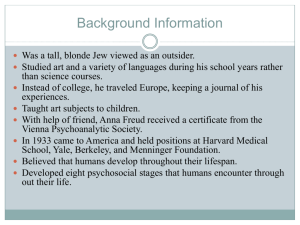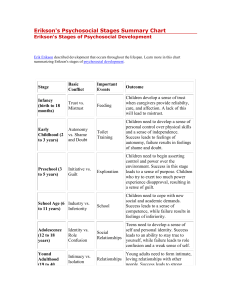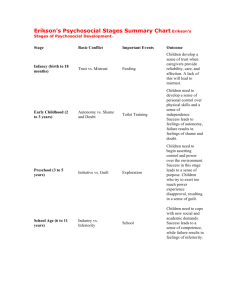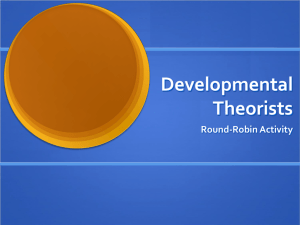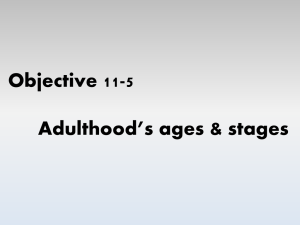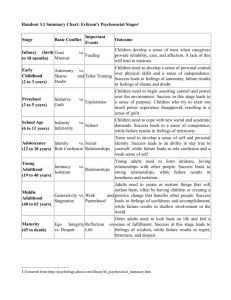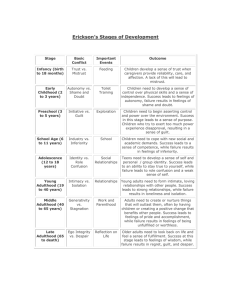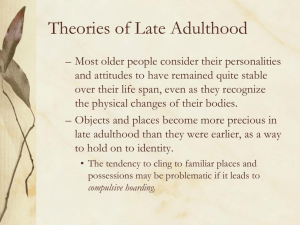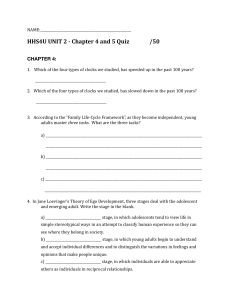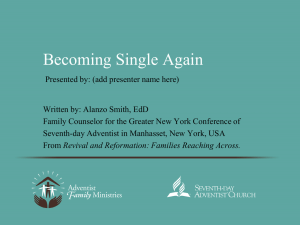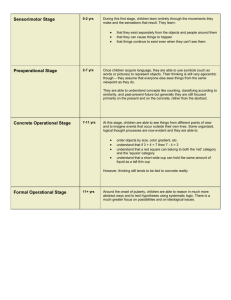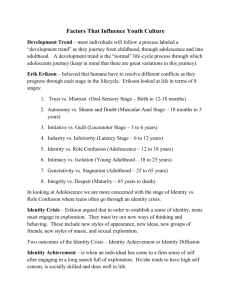Social-Emotional Development in Late Adulthood
advertisement
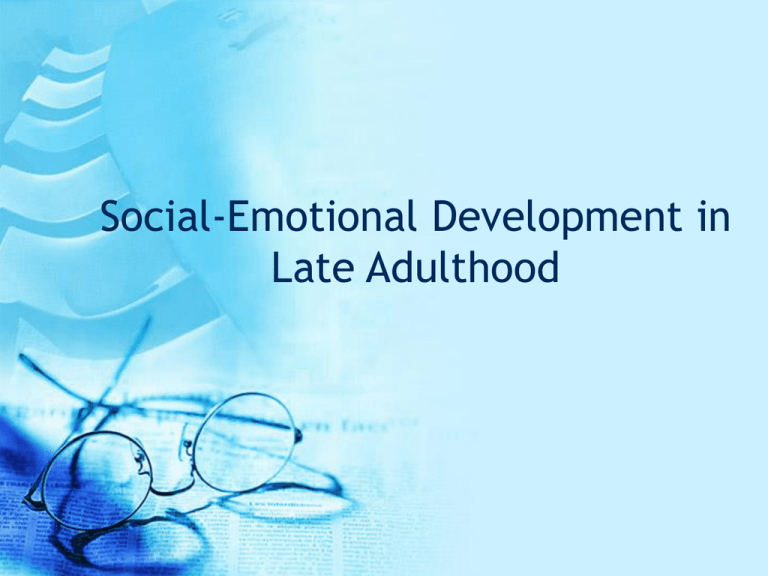
Social-Emotional Development in Late Adulthood Erikson’s Theory • Ego integrity vs. despair involves coming to terms with one’s life. • Ego integrity – Feel whole, complete, and satisfied with their achievements – Adapted skills to deal with triumphs and disappointments – Capacity to view one’s life in the larger context Erikson’s Theory • Despair – feelings that one made many wrong decisions, but time is too short to change – Difficult to accept death is near • Overwhelmed by bitterness, defeat, hopelessness – Feelings expressed as anger and contempt disguised as contempt for self Reminiscence and Life Review • Reminiscence- telling stories about past people and events & associated thoughts and feelings • Why? Does it matter? – Promotes positive emotionality and is adaptive • Life Review- Form of reminiscence but contemplates meaning of events in order to achieve a greater self understanding Relationships in Late Adulthood Marriage • 1 in 4 (or 5) in N. America survives for 50 years. • Perceptions of fairness increase as men participate more in household tasks • Engage in more joint leisure activities • Greater emotional understanding leads to more positive interactions • Video Divorce and Remarriage • Divorce in late adulthood is rare • Though, the divorce rate is rising – New generations accept marital breakup – rates are rising for second and subsequent marriages • More personal failure- difficult to separate from identity of spouse • Self-criticism heightens guilt and depression – Self-worth is based on past rather than future accomplishments Never Married, Childless, Older Adults • Only about 5% • Most develop alternative meaningful relationships (friends and family members) • Women in this category report life sat. equal to married elders and greater than divorcees and widowed – Inconsistent for men
